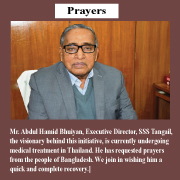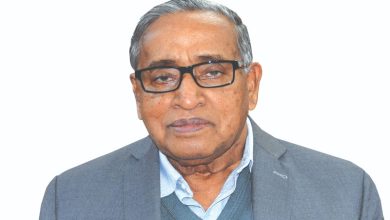Microfinance needs smart policy, not just soft loans: Dr. Abdul Quader


Holiday Post Report: Microfinance in Bangladesh is still a game-changer, but it needs deeper reforms and smarter execution. Dr. Abdul Quader, Founder & Executive Director of SETU, says in a firm tone that the success of microfinance is real. He believes it has truly transformed poor families by offering them income, access to health, and education. “People have used small loans to raise cows, open grocery shops, and educate their kids. That’s not just theory—it’s fact,” he says.
He points to the links between microfinance and Bangladesh’s progress on SDG-1 and SDG-5. “Poverty reduction and gender equality—both are supported through microfinance. Especially women are standing up with dignity,” he says.
But he doesn’t stop at praise. He moves quickly to the critical challenges. “Look, we can’t hide the truth. Overlapping loans and over-indebtedness are hurting the system. Some families take loans from three or four places. They can’t handle the pressure. It’s a crisis,” he says.
He mentions the Microcredit Regulatory Authority (MRA) has taken steps, but calls it “not enough.” He warns that small microfinance institutions are fighting to survive. “Big NGOs may manage fine, but the small ones are struggling. Financial stability is in danger if the policies don’t adjust,” he adds.
Digital microfinance, he notes, is another rising tide—but it’s not without its own storm. “Digital loans, apps, and mobile banking sound nice. But in many areas, people don’t even know how to use a smart phone,” he says. Cyber risks, digital illiteracy, and lack of internet are setting up a new type of inequality. “Digital exclusion is real. The same people who were once helped by microfinance are now being left behind,” he says in a tone mixed with worry and command.
Quader raises another critical point. He says disaster-prone zones like chars and erosion-affected districts need special attention. “These areas can’t be treated the same. Give them interest-free loans. Give them special support,” he urges. His tone suggests this is not a request—this is a demand for justice.
SETU was formed in 1983 aiming to enable the disadvantaged people for sustainable development. SETU’s development effort concentrates on organizing, mobilizing& empowering the marginal communities, enhancing their analytical capability so that they can act and speak in local, national even global context.
He praises NGOs’ contribution in achieving the SDGs but insists the approach must evolve. “NGOs must adopt policies that match today’s challenges. Rapid changes require rapid thinking. We can’t stick to 90s models in 2025,” he says.
Quader underlines SETU’s model of targeting underserved, remote areas. “We go where others don’t go. That’s what makes the difference,” he says. From beef fattening to youth entrepreneurship, SETU’s model focuses on long-term impact, not just loan recovery. “Our teams study every project’s sustainability before giving a single taka,” he adds.
He stresses rigorous monitoring and strong coordination with government agencies. “We don’t just lend. We follow up, we measure, we report,” he says.
Quader closes with a blunt assessment. “Microfinance is not dead. It just needs better governance, better regulation, and smarter delivery. We’re not asking for miracles—just the right tools in the right hands,” he says, ending with a gaze that suggests this fight is far from over.





